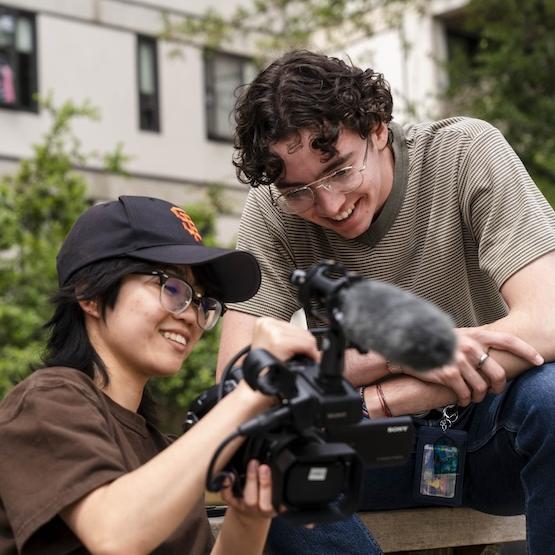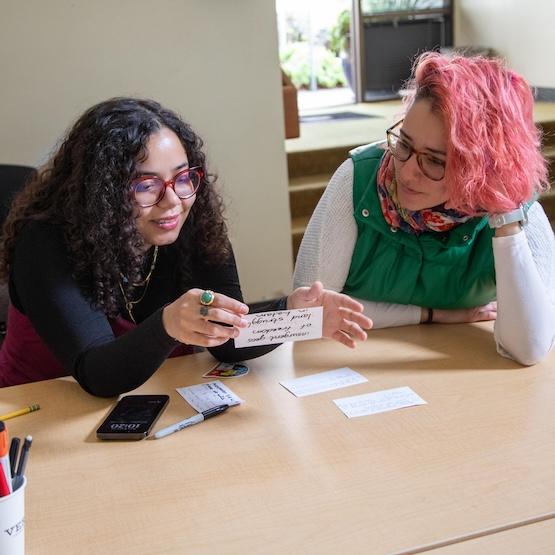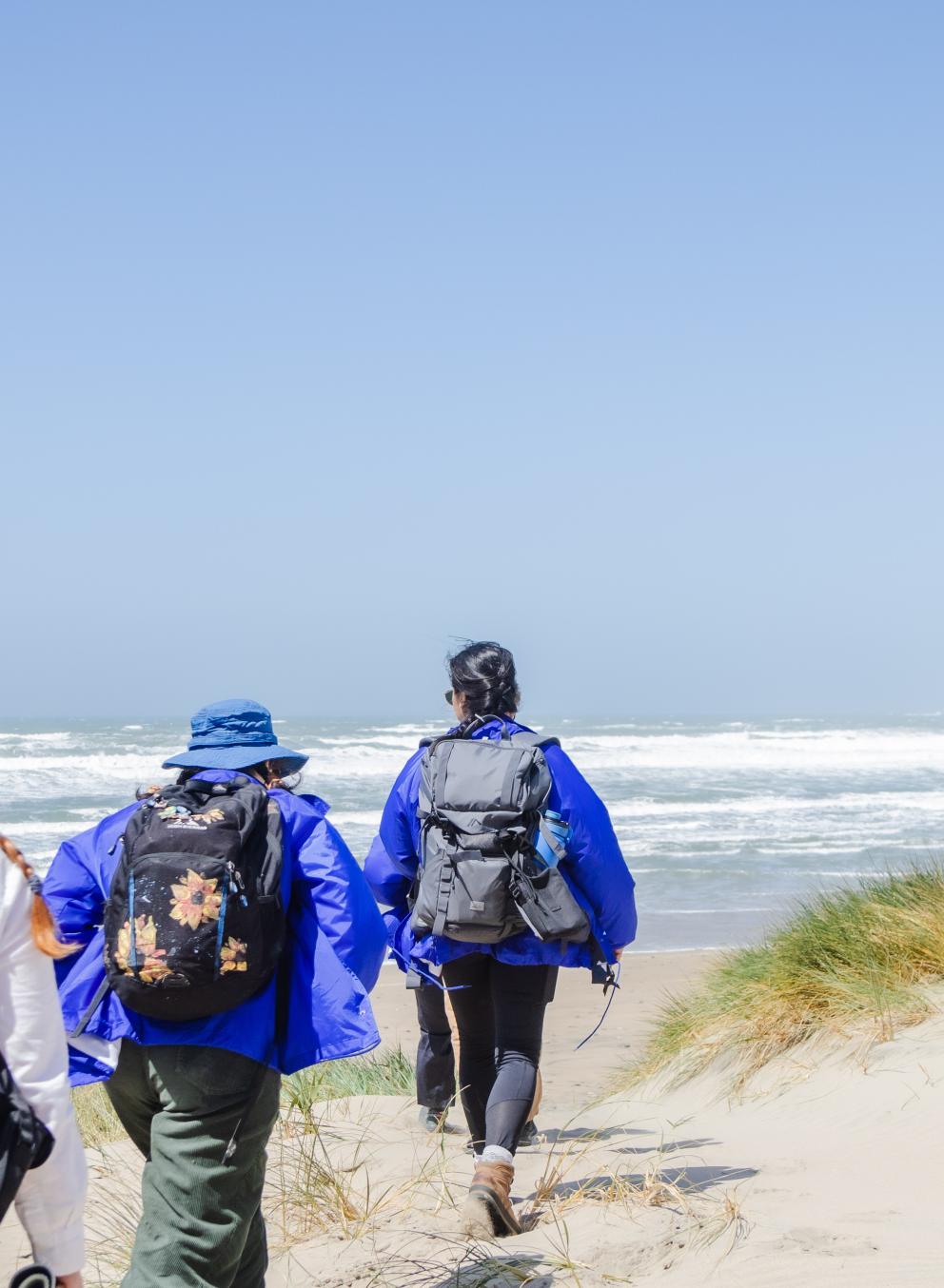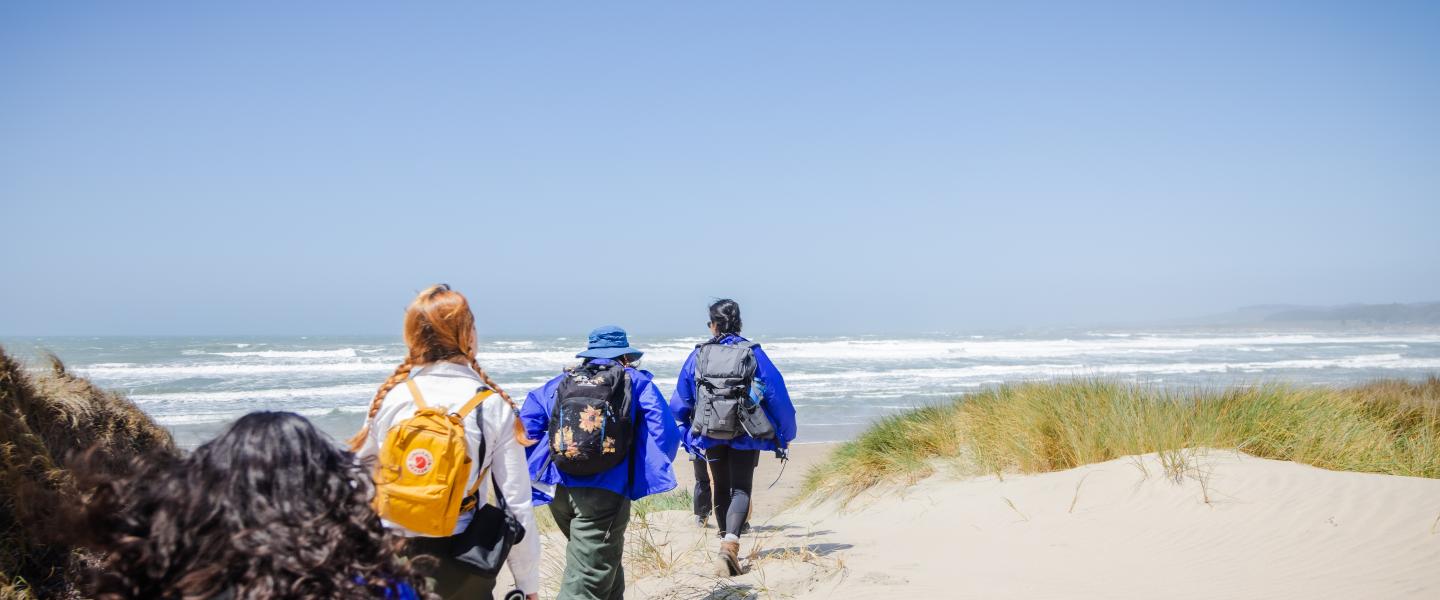- All Areas of Focus
- Other
- Social Sciences
- Not Applicable
Expand Your Potential!
Expand your potential and grow through our variety of fieldwork, internships, and exchange programs! By joining these programs, you can gain practical skills and knowledge, test drive a career path, and boost your resume. Every day, UCSC interns go to local schools and organizations, gaining valuable work experience and skills. Many of these programs also offer academic credit, and some internships offer stipends or hourly pay.

Deepen Your Subject Knowledge
Academic departments offer many exciting hands-on learning opportunities, either as a part of the academic program or as a separate co-curricular opportunity. Please see the links below for details about eligibility and placements.
Anthropology Experiential Learning
Community Studies Field Study and Experiential Learning
Ecology and Evolutionary Biology Undergraduate Research
Economics Field Study Program
Education Field Program
Environmental Studies Internship Program
Global and Community Health Experiential Learning
Kenneth S. Norris Center for Natural History Internships
Latin American and Latino Studies (LALS) Programs, Internships, and Field Study
Natural Reserve Internships
Psychology Field Study Program

Travel and Learn
Combine the thrill of travel with your education! Travel will open your horizons, put you in contact with new people and cultures, and deepen your understanding of the world and your place in it. You can participate in the UC Education Abroad Program, offering programs in 46 countries around the world and over 400 summer, semester, and year-long programs. Or try one of Global Learning’s many opportunities, including Global Internships and Partner Programs. Think you can’t afford it? Think again! Financial aid is available while you’re studying abroad, as well as scholarships.
The UCDC Washington program is an internship program where UC students live, study, and work together in the exciting environment of our nation’s capital. And we also offer a UC Sacramento (UCCS) program that offers an internship in public policy at our state capital.

Undergraduate Research and Internships
We offer you a rich array of research and internships offered by the four academic divisions and the Jack Baskin School of Engineering. Explore our Featured Careers page to learn more



